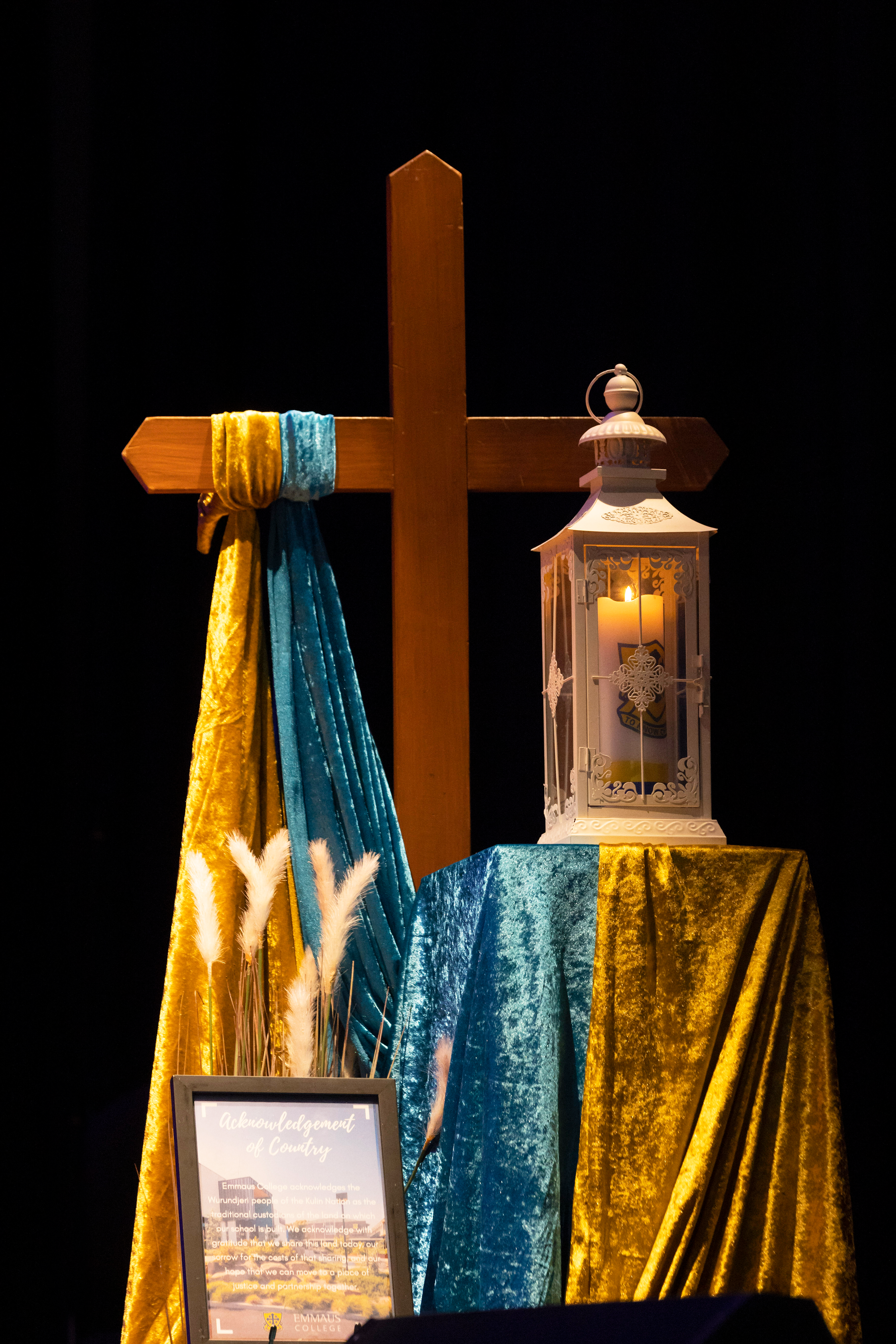Emmaus College is a proudly Catholic and Christ centred community witnesses the Gospel values in words, deeds and relationships. The school community is a place of welcome, where relationships are founded on Christian love and respect, and all are called to care for those in need and to work for a better world. Emmaus is committed to providing an education where our young people learn to integrate their faith with their life and the world in which they live.
“Here we support students to grow in virtue and to embrace a view of themselves and the world that leads to peace, justice, and the prospering of the whole of creation. It is a journey that is enlightened by faith, animated by love and leading to hope.” (Horizons of Hope, 2016)
The first and most explicit area of Catholic Identity and faith formation is the formal classroom Religious Education curriculum. Students enquire, explore, understand and come to know the essential elements of the Christian faith journey through the delivery of the Religious Education program. The Inquiry Learning approach frames aspects of the Years 7- 9 landscape, with learning focused on seeking knowledge, information, or truth through questioning, research, learning skills, thinking critically and creatively. Students in the senior school have the opportunity to select their own Religious Education pathway for their final years of secondary school; options include the study of a school based RE program, Units 1-4 Religion and Society, or Units 3&4 Text and Traditions.
The second area is the prayer, sacramental and liturgical life of the school. Student participate in many whole school masses throughout the year, weekly whole school prayer meditations, House liturgies, and special liturgical events such as Ash Wednesday and Holy Week liturgies, and the month of Remembrance. All whole school events begin with an Acknowledgement of Country and a prayer rich in scripture and symbolism. Our celebrations are further enriched by a lively music ministry and maximum student participation.
The third area is concerned with living within the Catholic tradition, orientating life’s decisions and way of living on the values and principles of the tradition. Life is expressed, understood and lived from the matrix of Catholic faith. Retreats, reflection days, seminars, social justice and outreach activities are ways which allow students to reflect, orientate and take action in living the values and principles of the faith tradition.






 Back to Menu
Back to Menu
